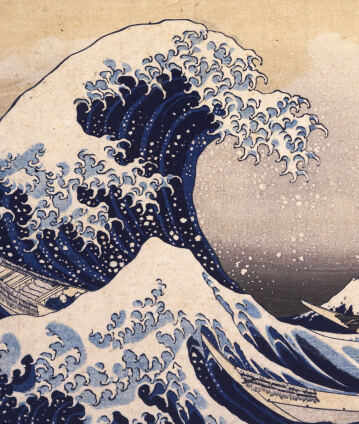“La Mer”: Water music with the Berliner Philharmoniker

Whether it’s the calm of the sea, a gently flowing river or a mighty storm on the ocean, our playlist shows how water in its various forms has inspired composers to write great works from the Baroque to the modern era. The selection presents, among others, Handel’s Water Music, Smetana’s immortal Moldau, dazzling pieces by Debussy and Ravel and – in a performance conducted by Kirill Petrenko – Rachmaninov’s tone poem The Isle of the Dead.
Talking about music with metaphors from the realm of water is obvious. We know the “flow of music”, “waves of sound” or “tones dripping into silence”. So it is no surprise that composers often choose water in its various forms as the theme of their works. But the influence of the element in music is not only evident from a programmatic point of view: in the form of the barcarole, which goes back to Venetian gondola songs and is characterised by its gently swaying rhythm, it was even given its own musical form – albeit indirectly.
In Claude Debussy and Maurice Ravel, we find work titles such as Jeux d’eau, Une barque sur l’Océan and La cathédrale engloutie (the title refers to the legend of a cathedral that sank into the sea). The two French composers also set their creations, dedicated to the fleetingness of impression, against the set forms of the German-Austrian tradition. And while Richard Strauss dedicated his last symphonic poem to the unchanging Alps, Debussy’s most famous orchestral work depicts the ever-moving, shimmering sea.
Of course, as our playlist impressively shows, water music does not belong exclusively to the French. “The number of boats was so great that virtually the whole river was covered,” wrote a contemporary about the first performance of Georg Friedrich Handel’s Water Music which was staged in the middle of the Thames, and which has had its admirers from the 18th century to the present day. Rarely has the turbulent sea roared so tempestuously in music as in Wagner’s Dutchman overture, and probably nowhere else has a river been so irresistibly “sung” about in the constant flow of music as in Smetana’s tone poem The Moldau. And while Mendelssohn evokes the ocean at rest in the dreamlike first part of his concert overture Meeresstille und glückliche Fahrt, in Tchaikovsky’s Shakespearean fantasy The Tempest the wild storm causes a ship to crash on the cliffs.
Our recommendations
- The “Late Night” concerts with discoveries for night owls
- Famous cello concertos: From the First Viennese School to the 20th century
- “From the New World”: A trip to America with the Berliner Philharmoniker
- Russian music with the Berliner Philharmoniker
- “Unanswered Questions”: Musical Modernism between 1910 and 1920
- A soprano’s perspective: Anna Prohaska’s favourites